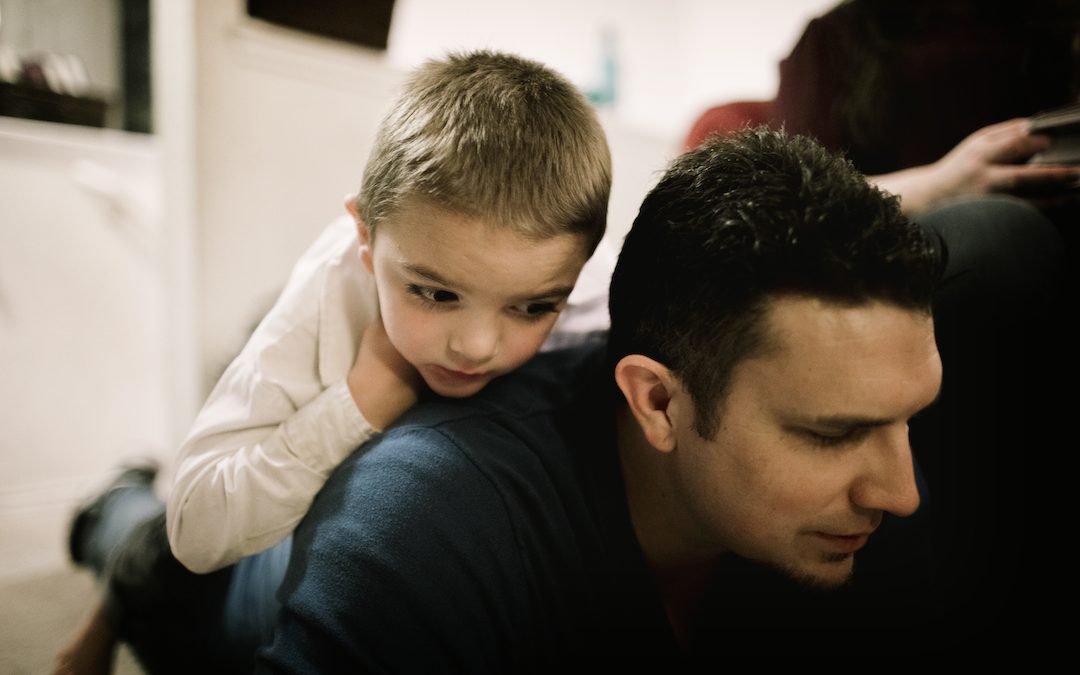
by Rachel Toalson | Crash Test Parents
Lately my family has been reading about global warming because we’re working on a big project to become more environmentally friendly. We’ve been watching documentaries, having discussions and brainstorm sessions, and reading stacks of books.
My kids are accustomed to reading books; we have several scheduled reading times in our home. It’s good for kids to have designated reading times—both read-aloud time and silent reading time. Research shows that reading aloud to kids not only builds their independent reading skills but also helps foster a love of reading in children. (Silent reading time does the same—plus reinforces the joy and importance of reading if a parent participates, too.)
Read-Aloud time is a great bonding time; sometimes, when you feel yourself out of step with your family, all you have to do is pick up a book and read it aloud.
It might look differently than you expect. In fact, here’s what it might look like when you sit down with your kids to read.
1. He’s standing on his head.
My sons love this little trick, and they will pull it out often. Don’t worry—they’re still listening. My sons have repeated word-for-word what I’ve read while they’re standing on their heads. It’s astonishing, given how much blood must be pooling in their brains. I wouldn’t be able to think straight if that were me. Not that I’d ever be able to get into a headstand position anymore.
2. He will open his own book and read and listen at the same time.
We have a strict policy in our house that if Mama or Daddy is doing the read-aloud time no one else has a book open. But every now and then our twelve-year-old will open a book and matter-of-factly tell us he’s listening in his subconscious. I beg to differ. This never flies.
3. He will have a million questions.
It never fails—as soon as I start my Read-Aloud time, my kids will have questions. Sometimes these questions are about the book itself, sometimes they’re, “May I please get a quick drink?” “What is 642 times 493?” (As if I even know the answer to that), or “What’s for dinner tomorrow night?” Kids have random brains. Sometimes they can’t help the questions that slip out unexpectedly.
4. He will want to control the pages.
Husband does the picture book reading most nights (because research also shows that dads reading to sons translates into love of reading more so than moms reading to sons), but sometimes he moves a little too fast for the listeners. Picture books have a lot going on in the illustrations, and oftentimes my kids will turn back a page in the middle of reading with unapologetic words: “Wait. Let me see that.”
5. He will ask for more.
Kids love stories, and they love the feeling of bonding with their parents through story. Even when you’re fully convinced there’s no way they could possibly have heard anything you said, they were listening and they want more.
And many times, you will, too—because stories are the same for everyone. They soothe, empower, repair, and impart joy.
Their shared moments become almost sacred.
(Photo by This is Now Photography.)
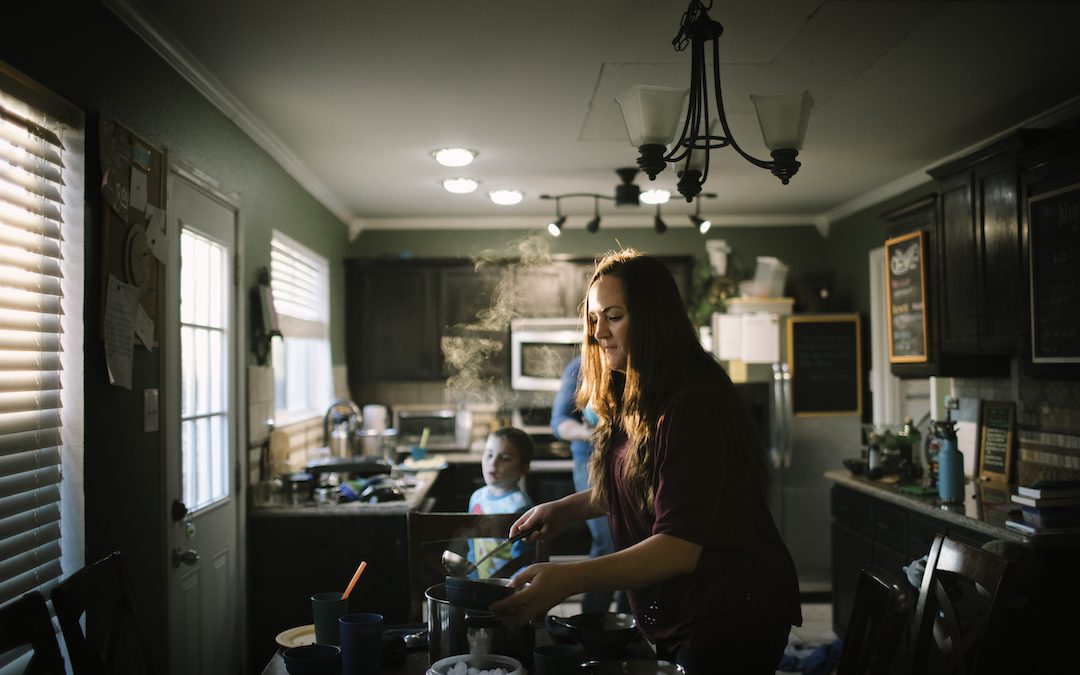
by Rachel Toalson | Crash Test Parents
Some of my friends have jokingly told me in recent days, “We hardly ever see you anymore.”
And they’re right.
There’s a reason for this, and the reason is: kids.
I’m not one to use my kids as an excuse, but I will say that they make going anywhere difficult. If we want to meet up with some friends at a park when the first rays of light splash across the horizon (which is when my kids wake on any given Saturday), we will pay for it on the way home. If we want to go grab lunch or coffee with some college friends while our kids play on a playground, skipping right past their nap time, we’ll pay for it on the way home. If we want to have dinner out with old (metaphorically speaking) double-date couples and keep the boys out past their bed time, we’ll pay for it on the way home.
You might notice a recurring theme here.
Most days, it’s just easier to stay home.
People often wonder why parents disappear for a time, usually that time period when their kids are young and incompetent and helpless to do anything but dress themselves, put on their shoes, and race out the door—and even that’s stretching it in my house. If I want to leave to go anywhere it’s almost certain that someone doesn’t have underwear on, someone can’t find their shoes, or someone is going to trip over the threshold of our front door and skin his chin.
Every Wednesday afternoon, we travel about forty-five minutes down a highway to get to a church and lead worship for a handful of teenagers. It’s late by the time we’re finished, and the kids have been cooped up in a church nursery for five hours, watching movies and eating unhealthy snacks and having everything at their disposal that they could possibly need to entertain them, besides nature.
This is a big besides.
By the time we get in the car, it’s way past their bedtime, and they’re so delirious they don’t even know how to act. This is how that trip back home typically goes:
Boys in the rear seats: Screaming their heads off, because they’re playing together. This means it’s mostly happy screaming, but I still wish we had volume control.
Boys in the middle seats: Trying to talk to Mama and Daddy, even though Mama and Daddy are trying to talk to each other. Talking soon progresses to whining, which progresses to very loud crying. One of them, the baby, is asleep, a small mercy.
Mama and Daddy in the front seat: Trying to have a conversation about the church service and what’s next on the week’s schedule. We’re not usually successful.
Over the course of the two years we’ve been conducting this excruciating experiment, I’ve captured countless conversations, taken copious notes on what boys do when they’re done talking (fart and sing is about it), and calculated, on average, how long it takes before a parent feels certifiably crazy in a car with children (only about 12.8 minutes, as it happens).
Here’s a typical sampling, collected this week:
9-year-old: You’re a skunk.
6-year-old: Okay, did you smell that toot?
9-year-old: Yeah, that’s why I called you a skunk.
6-year-old: Oh, I thought you were just calling me that.
5-year-old: Well, you are, kinda. You have white skin.
6-year-old: A skunk doesn’t have white skin. It has black fur with a white stripe.
5-year-old: Well, you have a black fur right there.
[He points to the chin of my 6-year-old, which I can assure you does not have fur on it yet.]
They all dissolved into hysterical laughter, as only boys who are brothers can.
Next they started telling jokes, which was excruciating.
Knock knock.
Who’s there?
Interrupting chicken.
Interrupting chicken—
[Very loud chicken noise.]
Knock knock.
Who’s there?
Interrupting cow.
Interrupting cow—
[Even louder cow noise]
Knock knock.
Who’s there?
Interrupting dog.
Interrupting dog—
[Dog noise that could shatter the windows.]
I thought it couldn’t get any worse.
And then they started singing.
My boys are actually really good at singing. This isn’t surprising; Husband and I used to be in a folk rock band before so many of them came along. We have three CDs in the archives and released a single a couple of years ago, because now that we have so many children it takes us four years to record one song. We’ll be ancient by the time the next CD releases.
So the singing doesn’t become a problem until the boys start fighting about which song they want to sing (as if they’ll ever agree) and who actually gets to sing it (as if they can’t all sing it at the same time). We suggested they sing their own songs, quietly, but the nine-year-old can’t stand this sort of thing. He likes order, not chaos, and truth be told, I do too.
But, hallelujah, it was time to turn off the interior lights, which meant they’d stop fighting with each other about who was going to pick the song they sing and would start fighting, instead, with Husband and me about how they just want to finish this one thing before the lights go out.
“It’s past bedtime,” Husband and I said. A thousand times, a billion times. By the time our boys settled down about the lights out, we sounded like robots. And I almost wished we were.
“I only had a couple more pages!” The nine-year-old tried one more time to get us to see his way.
“You can finish it tomorrow,” I said.
Actually, he finished it when we got home. He spent half an hour on the toilet reading.
By the time we get home from this weekly trip, Husband and I are usually all done with family togetherness, but still we’ll have to wrestle our twins into bed, put the baby down, and remind the three older ones that it’s bedtime, it’s bedtime, it’s bedtime.
Now it’s an hour past my bedtime, and I’m a little grouchy.
All that work is simply not worth it. Drop by my house anytime you want. You might have to brush some spiky blocks off the couches or step over the minefield of LEGO pieces carpeting our floor, and you might want to use the bathroom before you come, but you’ll always be welcome.
Just don’t ask me to go anywhere with these delightful little human beings.
This is an excerpt from Hills I’ll Probably Lie Down On, the fourth book in the Crash Test Parents series.
(Photo by This is Now Photography.)

by Rachel Toalson | Crash Test Parents
It’s been a rainy year. I know better than to complain, considering that most years in Texas feature more brown burned-to-a-crisp grass than the lush green kind on which you can walk comfortably with bare feet, but really. My kids are at each other’s throats, they’re tearing up the house, they’re longing to go outside—and when they do, they come back in with gobs of mud caked to their shoes and between their toes if they couldn’t find their shoes (which is highly likely). They will happily track this around the just-cleaned house. It’s art, so to speak—with footprints (and they can hide nothing; they went to the pantry for an unauthorized snack? No, they say. Well, there are footprints to prove it).
With so many rainy days and so many kids cooped up inside, I start arguing with myself about whether or not it would be a good idea to enforce my daily mandatory play-outside time.
It wouldn’t be that bad.
Have you seen the floor?
They’d have something to do.
They’d get all wet and muddy.
You’d have peace.
And that statement, in the end, gives me pause and necessitates one of the things I do best: an analysis of pros and cons, this one called: Pros and Cons of Kids Playing Outside.
Pro: They get a shower.
For some of them, that’s more than they got last week (what can I say? Preteens are tough). Letting them play outside means that I can skip wrestling them into baths and, instead, save my energy for wrestling them back inside.
Con: They’ll come back in dripping.
Rain is cold, which means my sons will refuse to put on their swimsuits; this kind of wet is different from pool-wet. They’ll need to wear layers for this, and all of those layers will get soaked. They will not think to take off those layers before coming back in—remember? It’s cold!
Pro: They won’t be constantly underfoot to trip me.
Particularly during the dinner hour, when tripping becomes exponentially more dangerous.
Con: But now I’ll likely slip in their wet footprints.
This is what’s called a no-win situation. Either way I’m going down. But baby, I’m going down swinging. Maybe. On second thought, I might need my hands to keep myself from dying. Falling’s not as easy anymore.
Pro: You don’t have to hear their fighting.
Research shows that kids fight every 2.5 minutes or so, and I’m pretty sure my kids are overachievers on this estimation. At least when they’re outside I won’t have to hear the ridiculous fights they start every other minute.
Con:
Is there a con to this point? I’m not convinced there is.
All things considered, playing in the rain doesn’t seem all that bad. It’s good for kids to be out in nature while nature is nourishing itself.
You might even decide to join them.
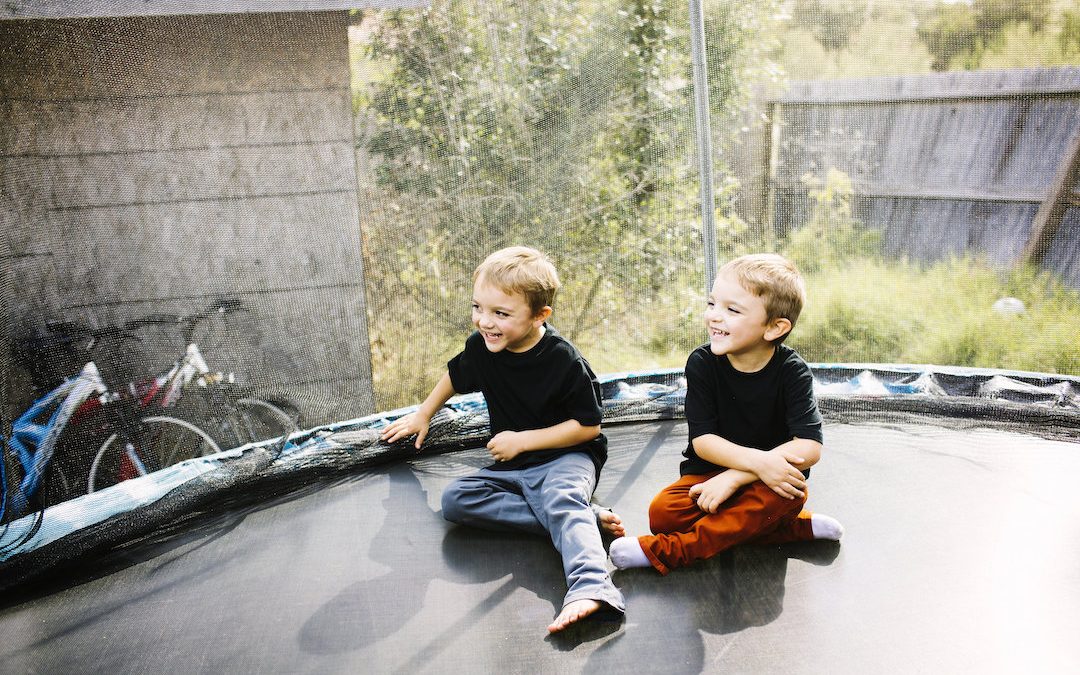
by Rachel Toalson | Crash Test Parents
You’d think that, at a certain point, when you’ve been a parent for a certain number of years or you’re the parent of a certain number of kids, there would come a time when you actually knew what you were doing. But we had our sixth baby a little more than a year ago, and while some things are easier this time around, I can still say, with certain certainty, that even on the sixth kid, I have no idea what I’m doing.
See, the thing about parenting is that a whole lot of it comes down to the children. There’s not one single thing that’s going to work for every parent and every child, because there’s no one archetype of “child” to point the way. I know. Our home is like a controlled experiment, a laboratory for testing out parenting practices. There’s the strong-willed nine-year-old, who will challenge every single thing out of each parent’s mouth, because he always sees things differently; there is the seven-year-old, who can’t possibly stay out of candy if it’s anywhere in the house, even if he’s been told not to touch it; there is the six-year-old, who shuts down whenever anyone tells him he did something wrong and needs to make reparations, clamps so tight we can’t see his hurt or his fear or his anger; there are the four-year-olds who care nothing at all for consequences, only care for their curious impulses that lead them to discover what a yard might look like if they emptied the entire recycling container while their mama was doing her workout inside and probably, arguably, should have checked on them but really thought they’d learned their lesson the last time when they had to sit in their seats at the table without playing for an hour because they’d emptied the trash receptacle in the same exact way; and there is the fifteen-month-old who is perfect—at least until he turns three.
All of these children are different. We teach them all the same things, but we do it differently. We have no idea what we’re doing. We do what our gut tells us to do. When the nine-year-old comes up with some different point of view about how we should handle bedtime, because he doesn’t think he’s allowed to stay up late enough, because all his friends get to stay up this late and why can’t he, we don’t ever know what to do or say the first time (besides the old, maddening, “If your friends were jumping off a cliff…”). We find our way into it.
Sometimes we can put too much pressure on ourselves as parents to know the exact right thing to do in every challenging moment, even though we’ve never had a moment where we opened a door and the eighteen-month-old is sitting in a room of painted poop—which happened for an excruciating forty days when my twins were eighteen months old.
We can let our not knowing what to do make us feel like maybe we shouldn’t have been parents in the first place. We feel incompetent, broken, not enough—not intelligent enough, patient enough, strategic enough, energetic enough, kind enough, brave enough—for this task before us.
But let me just tell you something: even on the sixth kid, I don’t really know what I’m doing. Sure, I know why the baby’s crying right now, because I’ve had a lot of practice in reading cues and being attuned to an infant. I know that right now he’s hungry but a few minutes ago he was uncomfortable because he had a wet diaper. And, yes, I know that if I tell the nine-year-old that it’s time for bed and he didn’t have any kind of advanced warning, he’s going to flip out. I know that if I try to forbid the four-year-olds from the LEGO station and the LEGOs are left out, they’re not going to have enough impulse control to keep from putting their hands all over their brothers’ creations every other minute.
I know that if I tell my seven-year-old he doesn’t need another snack, because it’s almost time for dinner, he will still find himself wandering over to the refrigerator to see what’s inside—not because he’s defying the rules but because it’s habit; he’s always, always hungry. I know that if the six-year-old is asked to find anything, even if it’s right in front of his face, it’s going to be gone forever and ever and ever and he will need my help to find what’s almost touching his head as he lies on the floor and pontificates in a whiny voice about how everything he loves always disappears and why can’t he have anything that is just his?
I know all of these things. I know my children. I know myself. But there are some things that can completely blindside me as a parent. I know that when my sons’ school called last year and the nine-year-old (who was then eight) was making threats about hurting himself, I didn’t know how to possibly handle it. I know that when the six-year-old told me there was a boy in his class who made fun of him on the playground and liked to knock him down, I didn’t know what to do about it. I know that when the seven-year-old said he wanted to play soccer and Husband and I are musicians, writers, and artists, I didn’t even have a clue about the first thing I could do.
My kids, after all these years of being a parent, still surprise me. Like the day Twin 1, who was three at the time, took out a bunch of Halloween tattoos someone had given us and decided to put them all over his face so his skin looked like a patterned sheet of ghosts and werewolves and “Happy Halloween” in orange and black. Like the day Twin 2, also three at the time, put on two different shoes, one green and one white, and announced that he was ready to go and then argued for ten minutes about whether or not these shoes belonged together.
Like the afternoon the oldest, eight years old then, stormed up the stairs because he had finished his technology time and he wanted a few more minutes, but, because we’re very rigid on how much time our kids spend with technology, the answer was no, and he said in this low, growling voice, “Yooouuuu meeeaaaannnn Daddddddyyyyyy” and then disappeared from our view, thankfully. Like the morning our third son was only three and announced that duck rhymed with “f*ck” and a bunch of other words we didn’t hear because we only heard the one he’d never encountered in his life because no one in our house ever says it. Like the day the second son ate an entire two pounds of grapes while we weren’t looking (we didn’t even know that was possible. Apparently, his body didn’t either, and he was glued to the toilet the rest of the day. Natural consequences.).
Sometimes I don’t know whether to laugh or to cry.
There are still times when I feel way in over my head, unsure if I’m the person for this job. Like when the nine-year-old decided to express his anxiety by wrapping a scarf I’d knitted him around his neck and pulling, like he was going to choke himself. Like when the six-year-old scribbled that he hated his brother because he wouldn’t let him play. Like when the seven-year-old, who is normally a very encouraging and easy child, said he wished he was in a different family.
Just because I have six children doesn’t mean I know what I’m doing all the time, every day. That’s okay.
These are the things we learn as we go. We don’t have to know everything about parenting when we take our first wobbling steps as a parent. The point of parenting is not to know everything there is to know when we first begin. I read so many parenting books before becoming a parent—I still do!—so I could equip myself with all the knowledge I could possibly gather. Still, I have to find my own way.
We grow, just like our children grow. We make our mistakes, we make our reparations, we make our transformation.
How do we grow? We spend time getting to know our kids—all their hilarious inconsistencies, their maddening behavioral issues (that make for humorous tales), their dreams and disappointments and hurts and joys. We embrace their fragile, lovely hearts. We love.
And that’s always enough.
This is an excerpt from Hills I’ll Probably Lie Down On, the fourth book in the Crash Test Parents series. To get access to some all-new, never-before-published humor essays in two hilarious Crash Test Parents guides, visit the Crash Test Parents Reader Library page.
(Photo by This is Now Photography.)
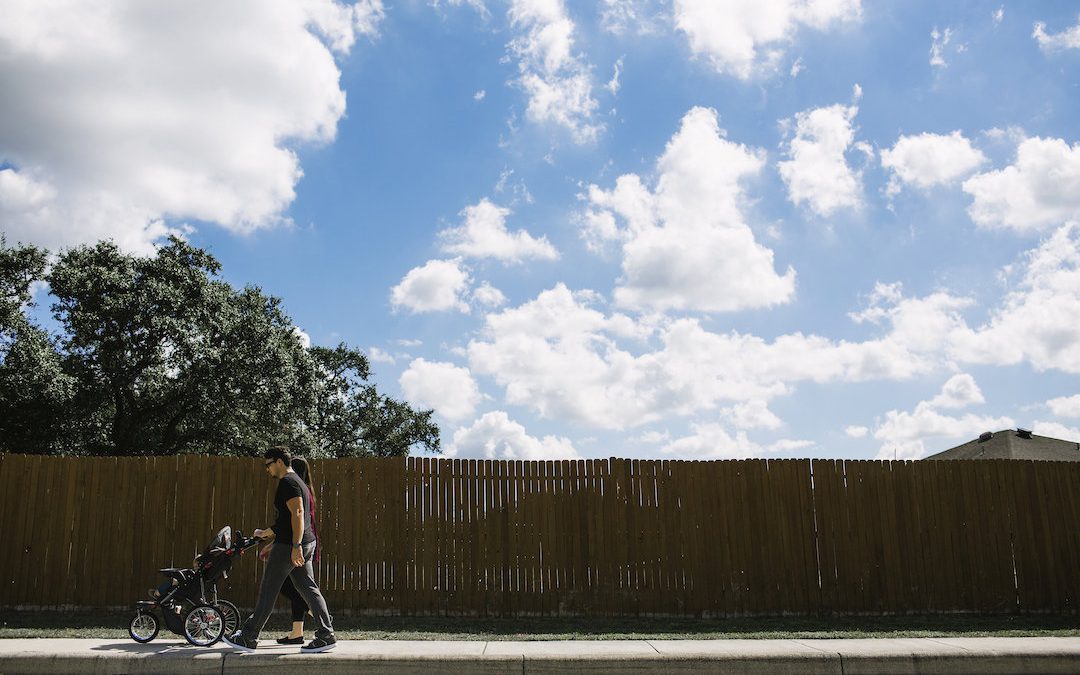
by Rachel Toalson | Crash Test Parents
Before Husband and I were married, he used to do all sorts of things to romance me. He would bring me flowers and put them in beautiful vases all over my apartment so I’d remember, when I looked at them, that I was beautiful. He once gave me eleven roses instead of the full dozen and wrote me a note that said, “If you’re wondering where the other rose is, just look in the mirror.” I know. I’m a lucky woman.
For our first date, he showed up at my door with a handful of wildflowers, and we spent the morning at this epic mountain in Wimberley, Texas. You had to climb up five hundred sixty-three precariously wooden stairs to get all the way to the top. It was wonderful once we made it, as long as we didn’t look over the side, which would make me dizzy and, because I’m one of the most graceful people on the planet, likely plummet to my death. That day he brought his guitar and we sang together, and then we kissed and then we pretended we watched the sun rise, even though the sky was covered in a cloudy haze that did not allow any sort of beauty through. The only reason we knew the sun had risen at all was that a small yellow eye hung in the clouds, and we assumed it was the muted sun.
The night he proposed to me, he went to great lengths to arrange a production with a ballet theatre that had come to town. He wanted to take me backstage and stand there, drop to one knee, and pop the question. He got all dressed up in a tux, and I wore a long and strapless red dress, and, after fighting a bit about my not wanting to go backstage because I was so incredibly hungry, he won and pulled me up on stage in front of five hundred people, dropped to a knee and, indeed, popped the question.
His romance has always been a disaster waiting to happen, but it’s sweet and wonderful and so very missed.
It’s a running joke in the contemporary world that once you get married—once the guy gets the girl—he stops romancing. It’s not true in my case. Husband kept up his romancing for years—he crafted a life-sized card for our first anniversary, wrote a song for me on our second anniversary, and left me alone for our third anniversary.
That was the anniversary when I was eight months pregnant with our first son.
When we had children, all romancing screeched to a halt—not because he didn’t want to romance me but because kids make it practically impossible to do anything special for one another.
There was the year when he tried to make me a video with the kids telling me what a great mother I was, and they just kept staring at the video camera and laughing, because they didn’t know what to say and they were more interested in goofing around. There was the time when he arranged a little art project wherein they drew pictures and colored in letters and he put it all in a frame that was broken two months later by the same kids who had colored it. There was the time he tried to write me a song and then record it, and you could hear kids calling his name in the background.
No more sweet and thoughtful gifts, when you have obstacles at every turn.
He used to whisper sweet things in my ear, but it’s hard to whisper anything sweet when there’s a kid pulling on your arm, trying to demand your attention. Most days, our sweet whisperings sound like any of these phrases:
“Hey, do you want me to wash the dishes tonight? I know you have book club.”
“I made the bed today, and I put a load of laundry in the wash. Just thought you should know.”
“How about I take the kids to the pool for the evening and you stay here and…clean up?”
Once, on a Mother’s Day after I’d just had twins, Husband left me a note and said, “I thought you might enjoy a day off from church.” He’d left all the kids home with me, because he also thought I’d like to spend Mother’s Day with them.
Well, he had good intentions, at least.
“Why don’t you go to the grocery store by yourself, honey?” is also a frequent romancing technique, even though going to the grocery store is probably the last thing I’d like to do, because it requires too much thinking, since I nearly always leave my list at home. I usually take him up on it, though, because at least I’m getting out of the house. Sometimes I’m so tired I can hardly move, and a vegetative state without kids jumping on me every five minutes is preferable to going out to the grocery store, but I’ll still do it, because “a vegetative state without kids jumping on me every five minutes” is not an actual possibility in our house.
As you can imagine, Husband and I also don’t get very many date nights out. It’s not easy to find a sitter for six kids, especially when you’re calling at the last minute. So our romancing looks like sharing a bowl of popcorn in our bed while we catch up on Netflix shows.
Romancing looks a lot different now that we have kids. It looks more like completely tidying the house before I come down from a long day at work. It looks like playing a game of trampoline dodgeball with the boys out back so I can have a few minutes to myself while I wash the dishes. It looks like distracting kids with a story while I squeeze in a five-minute shower.
But you know what? All of that is romantic, too, because these are acts of sacrifice. Maybe there isn’t a whole lot I can show for it—there’s not a love song I can sing in the shower or a video I can share with all my family or a card that I can keep in my dresser forever. But that does not diminish the romance of these small and thoughtful acts.
Romance is all how you look at it.
And, if I’m being honest, the small and thoughtful acts mean more to me. Sure, it was fun to get all dolled up so I could stand on a theatre stage and cry my yes to his question. Sure, it was exciting to see him show up at my door with a bouquet of random flowers hiding his face and then follow him out to watch the sunrise. Sure, it was wonderful to be called a beautiful rose.
But we get to do interesting things now, too. We get to curl up in a blanket on a winter morning and watch the sunrise from the back porch while the kids are still (hopefully) sleeping. We get to drink hot chocolate in the late hours of the night and eat popcorn and watch old episodes of “How I Met Your Mother.” We get to share our lives with children and watch them enrich it with beauty and meaning.
The other day Husband brought me flowers for the first time in years. He put them on a table and all the boys exclaimed over them, pointing out their colors and their shapes and the water that would keep them alive, at least for a few days. The whole kitchen seemed brighter, and I smiled.
It’s still possible to romance after children. You just have to know what you’re looking for.
This is an excerpt from This Life With Boys, the third book in the Crash Test Parents series. To get access to some all-new, never-before-published humor essays in two hilarious Crash Test Parents guides, visit the Crash Test Parents Reader Library page.
(Photo by This is Now Photography)
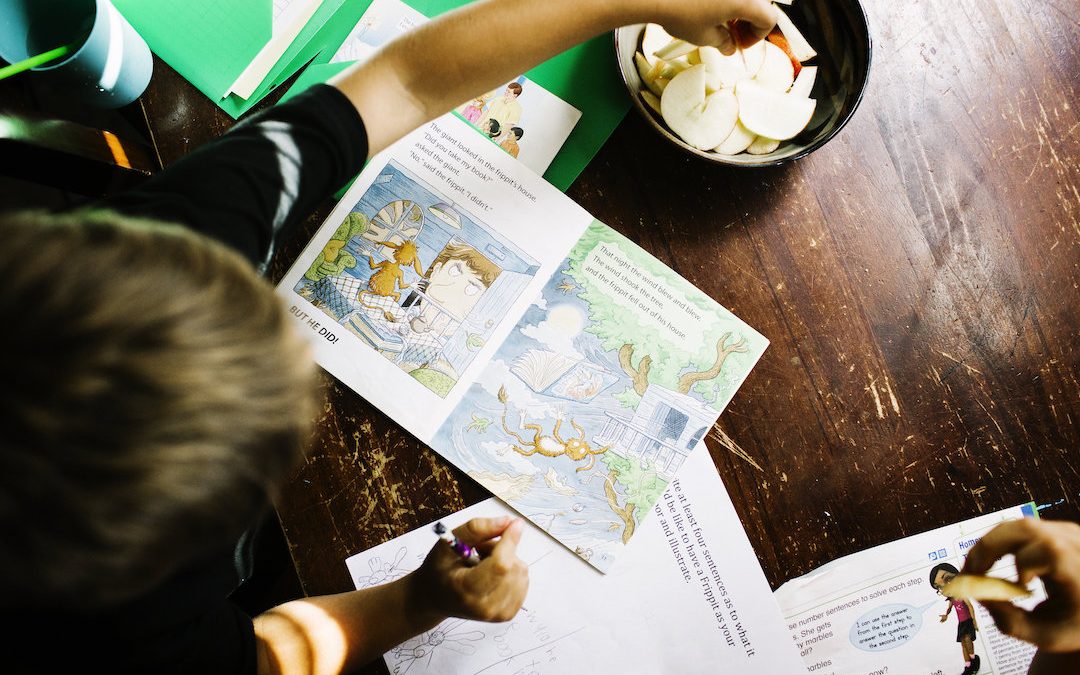
by Rachel Toalson | Crash Test Parents
Any time I’ve asked my children why they love me, I’m always surprised by their answers. I mistakenly think they’ll tie my love to the things I give them or the places I take them or the time I spend with them doing complicated things (like crafting with glitter).
But it’s really much simpler than that.
1. I cook.
Because they love to eat so much, boys can feel love through food. While I don’t always cook and, when I do, it’s not always wonderful, they know I do the grocery shopping and the meal planning and that I provide or cook the most important part: dessert.
2. I read to them.
My sons have grown up on stories, and while they may not yet be able to recognize how important this is for them, they do know the joy of sharing novels, poetry, and true stories with their parents.
Last year I gifted my 9-year-old with a kid’s literary magazine for his birthday. He thought it was the greatest gift ever and tells me so every time a new issue comes in the mail.
I know him—and he knows that knowing equals love.
3. I let them play outside.
I think they mean I make them play outside, but who’s splitting hairs over unimportant things? They know they have the freedom to sword fight with sticks, build forts out of lumber, and dig holes for…well, who knows what (we gave up asking a long time ago).
4. I sign their school folders.
Most of the time—at least until the second semester of school starts and/or my pen disappears, whichever comes first.
(This year we made it to the second semester.)
5. I’m an author.
My sons are still too young to be embarrassed by my status as an author. I’ve visited two of their schools already this year, and they are still proud enough to come up to me and give me a hug in front of their friends, to say, “This is my mom.” I like to think they’ll never stop loving this about me, but I know adolescence takes its toll.
My sons are remarkable kids, and I am amazed, always, by their graciousness and caring ways and their extravagant love. Even on their less-than-stellar days, when they call me the worst mom ever for telling them it’s time to put their technological devices away, they can recognize, deep down, the way I love them in the limits I set.
Stability spells love to children—even if they can’t yet name it but can only feel it.
(Photo by This is Now Photography)







